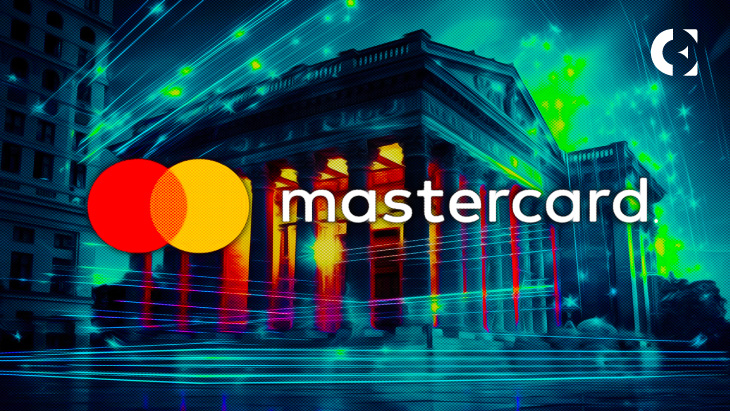- Mastercard and US banks collaborate on shared-ledger tech, aiming to streamline settlement of tokenized assets.
- Major US banks seek SEC assistance for Bitcoin ETF participation amidst regulatory hurdles.
- Republic First Bank’s closure underscores banking sector challenges, prompting calls for regulatory adjustments.
Mastercard, in collaboration with major US banks, is pioneering a new frontier in financial technology by testing shared-ledger technology as per Bloomberg report. This innovation aims to enable the seamless settlement of tokenized assets, including commercial bank money and various securities such as Treasury bonds and investment-grade debt.
The initiative, known as the Regulated Settlement Network proof-of-concept, seeks to streamline transactions in dollars, with the ultimate goal of enhancing cross-border transaction efficiency while minimizing errors and fraud risks.
Ledger technology holds transformative potential, potentially revolutionizing financial transaction processes. Currently, assets like commercial bank money and securities operate on disparate systems.
However, by tokenizing these assets and leveraging distributed ledger technology, settlement processes could be consolidated onto a unified platform. This trial represents an evolution from a previous 12-week test focused on domestic and cross-border payments in dollars, initiated in late 2022.
The trial involves notable institutions like Citigroup Inc., JPMorgan Chase & Co., Visa Inc., Swift, and other significant players in finance. Additionally, expertise from entities such as the Bank of New York Mellon Corp. and the International Swaps and Derivatives Association will enhance the trial’s effectiveness.While financial institutions globally have been exploring shared ledgers for tokenized transactions, commercial deployment is not guaranteed from this trial.
In a separate development, major US banks are seeking assistance from the Securities and Exchange Commission (SEC) to participate in the recently approved spot Bitcoin exchange-traded funds (ETFs) market.
Leading banking associations, including the Bank Policy Institute (BPI) and the American Bankers Association (ABA), have penned a joint letter to SEC Chair Gary Gensler, requesting targeted modifications to Staff Accounting Bulletin No. 121 (SAB 121) to facilitate their involvement.
Meanwhile, the recent closure of Republic First Bank, marking its second collapse after 2023, underscores the challenges facing the banking sector. This event highlights ongoing concerns within the industry and emphasizes the need for regulatory adjustments to address systemic vulnerabilities.
Disclaimer: The information presented in this article is for informational and educational purposes only. The article does not constitute financial advice or advice of any kind. Coin Edition is not responsible for any losses incurred as a result of the utilization of content, products, or services mentioned. Readers are advised to exercise caution before taking any action related to the company.







